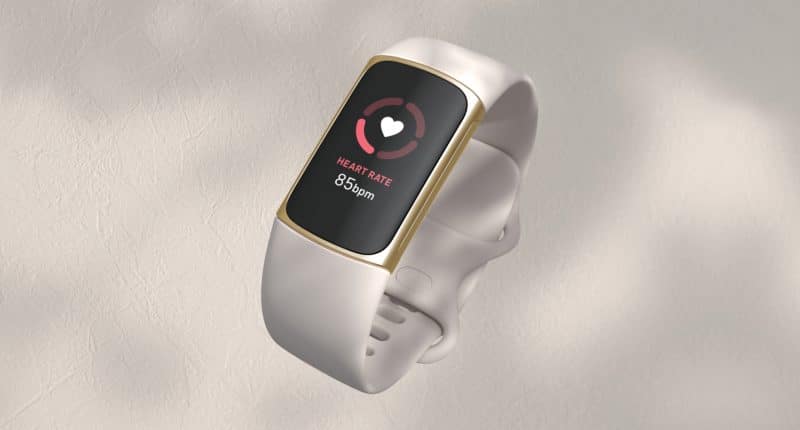Despite the alarm bells that rung off when Google announced that it was acquiring Fitbit, the tech giant has continued to strive for innovation in this market. Today, the company has announced the latest line of Fitbit Charge fitness band- Charge 5, equipped with ECG and EDA sensors.
While Fitbit’s devices have always given a special consideration to fitness tracking (hence the term ‘fitness band’), this time, the stakes are higher. ECG (heart) and EDA (stress) sensors are features that are usually seen in smartwatches, a product that is one category above fitness bands. However, since it might become difficult for Google to compete with other bands on the lower end of the price spectrum, it has decided to add smart watch like features that can help it justify the higher price point- becoming the flagship of this market.
The band has a more rounded look than its predecessors, along with a colored AMOLED display, further pressing on the ‘almost smartwatch’ feel that Google is hoping to attain. The screen is also 10 percent larger than the Charge 4’s, and can get up to 450 nits bright, up from the Charge 4’s 200 nits
That’s not all, as the Charge will also allow round the clock heart monitoring, which has been made possible by a battery that Google claims will last an entire week. However, with the Always On Display, this figure will reduce to a mere 2 days.
Moreover, as cherry on the top, the band will also come with a new feature called Daily Readiness Score. Under this, your fitbit will track various metrics like heart rate variability (HRV) and recent sleep, to help you assess your ‘readiness’ for pushing yourself. In simpler words, this score will tell you if you should workout or prioritize recovery.
” By wearing your Fitbit device daily (including while you sleep), you’ll receive a personalized score each morning along with details on what impacted it, with suggestions like a recommended activity level and Premium content to help you make the best decisions for your body and make your workouts more efficient,” the company said.
While all of this certainly will help Charge 5 in its goal of becoming a fitness band-smartwatch hybrid, it does come at a cost. The new Charge band costs $180, which, is $30 more than the last version. While it’s not a major jump, it still makes Charge much more expensive than a lot of fitness bands available in the market.
The Tech Portal is published by Blue Box Media Private Limited. Our investors have no influence over our reporting. Read our full Ownership and Funding Disclosure →






